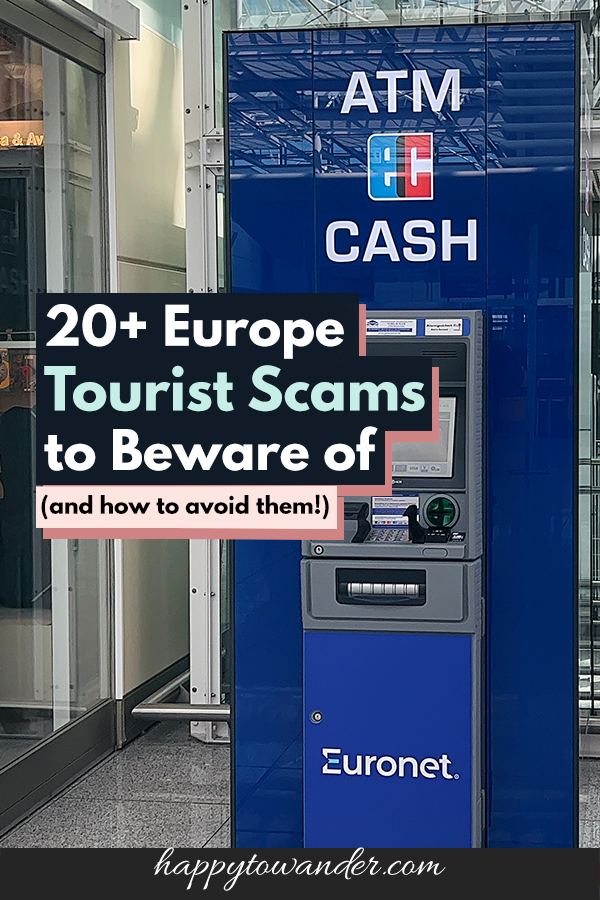*FYI - this post may contain affiliate links, which means we earn a commission at no extra cost to you if you purchase from them. Also, as an Amazon Associate I earn from qualifying purchases. Check out our Privacy Policy and Disclosure. for more info.
Thanks in part to fearmongering videos and anecdotes about someone’s friend’s roommate’s uncle who had his wallet stolen, many first time visitors to Europe are often nervous about tourist scams when it comes to their grand European adventure.
But let me make one thing clear: You will not be dodging tourist scams left, right and center when you go to Europe. Scams exist, sure, but they’re mostly the same ones over and over, and take place primarily in congested tourist hotspots.
Know what to avoid/look out for, and you’ll be just fine. Luckily, that’s what today’s post is all about!
So, read on for a list of Europe tourist scams you may encounter in busy hotspots, as well as how to avoid them.
1. The Fake Apartment Scam
How this scam works: You find an impossibly perfect looking apartment while searching for a place to stay on your trip. And the price is good too! What could possibly go wrong? Unfortunately, when you arrive to the address provided, you learn that the apartment rental you booked isn’t there, that the people living there had no clue someone was charging to rent out their apartment, or maybe somewhere along the way you were asked to wire a deposit separately, money you’ll likely not get back! Lesson learned – if the deal seems too good to be true, there’s probably a reason for that.
Sadly, fake apartment scams (if TikToks and social media are anything to go by) are becoming quite common in major cities, so…
How to avoid getting scammed this way: Always diligently read reviews and vet any properties before booking. Be sure to not just look at reviews on the booking platform you’re using, but Google the name of the property or the address. If nothing comes up at all, this is a red flag that’s worth looking into, and check out my guide to booking the best accommodation in Europe for some extra tips.

2. The Priceless Menu Scam
How this scam works: Most commonly seen in super popular tourist locations like Venice or Santorini, this scam relies on you being too hungry to notice that the restaurant you picked has no listed prices on the menu (or perhaps lists prices in a misleading way, like per 100g in small print), resulting in some serious sticker shock once your final bill arrives… sometimes to the tune of 900+ euro for lunch!
How to avoid getting scammed this way: Always be careful when you’re sitting down at a restaurant and make sure there is a price list available. Ideally, you should also be searching up menus and reviews in advance, because if someone has been scammed before, trust me, they will make it very clear in a review!
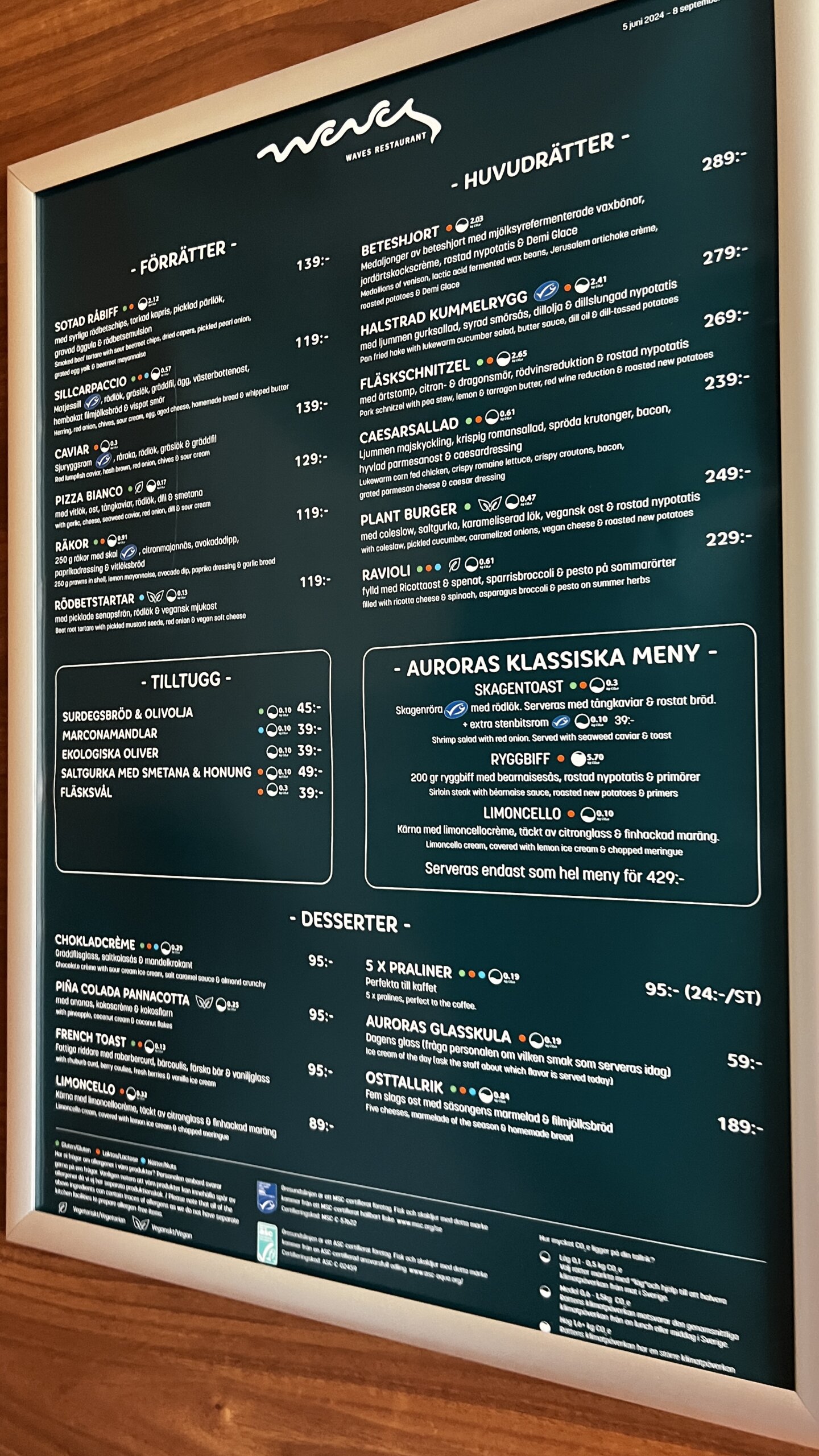
3. The Overcharging Restaurant Scam
How this scam works: You sit down at a restaurant and you help yourself to what you think are freebies (e.g. bread on the table, or perhaps random dishes you didn’t order). To your surprise, once the bill comes, all these items have been added to your bill.
How to avoid getting scammed this way: Do not assume that anything is free – if you’re unsure, then do clarify how much it is. Do beware though that in certain countries e.g. Portugal, it actually is a cultural custom to bring some little appetizers for the table that are included in a cover charge (couvert). In that case, it’s not a scam is just it is optional. If you don’t want it, you can tell them to take it away.

4. ‘Free for You’ Scams
Now, another really common category of Europe scam that is (in the grand scheme of things) pretty harmless, but something to be wary of is what I call the “free for you” scams.
How these scams work: A stranger approaches you on the street in a busy touristy area e.g. a central square or landmark and offers you a “gift” that they insist is free, like a flower or a piece of jewelry. Once you accept said gift, they’ll ask you or your travel partners for money/a donation in exchange for it, often refusing to leave you alone until you pay up or give the “gift” back.
How to avoid getting scammed this way: It’s pretty safe to assume that if a stranger tries to give you something for free, they will want something in return. To avoid any hassle, just firmly say no and move on or (more effectively) do not engage with them at all and walk away. Stay strong – don’t even make eye contact, and certainly do not accept anything they try to place in your hand.
NOTE: The main exception where free does indeed mean free are samples from a shop, but in most cases this will be very evident as they’ll be right in front of the shop or dressed in uniform.

5. The Bracelet Scam
How this (very common) scam works: This type of ‘free for you’ scam deserves its own mention because it’s SO prevalent in popular cities like Paris, Florence, Rome, etc. Basically, a stranger will come up to you in a busy touristy area and try to sell you a friendship bracelet, or (in extreme cases) tie one to your wrist without asking, insisting it’s a sign of welcome or good luck. They will then hassle you for payment after the bracelet is tightly tied to you.
How to avoid getting scammed this way: Again, the best course of action here is to not engage. Usually they will stop you by asking an innocent question like “where are you from?” – don’t stop. Just walk away and ignore, preferably keeping your hands in your pocket or in a position where they can’t easily tie something on your wrist.

6. Photo Opp Scams
Another category of ‘scam’ I need to mention is what I call photo opp scams. Perhaps the word scam is too harsh in this case, but it’s a fairly common ploy that targets unsuspecting tourists, so I figured it’s important to mention!
How this scam works: You’re in a busy tourist place and someone dressed in a fun (or more often, creepy) costume beckons you over for a photo. You innocently grab a quick photo, then they start demanding some kind of donation or payment for it, refusing to relent until they’ve been paid.
How to avoid getting scammed this way: Granted, if you do want a fun photo and don’t mind paying for one, then there’s no shame in getting a snap by Big Ben with that creepy off-brand Mickey Mouse. Buuut if you don’t want to pay and don’t want to be bullied into paying, then the best course of action is to just ignore any of these photo opp beckoners when they try to wave you over – no matter how cuddly they look!

7. Taxi Scams
Another category of scams to be mindful of, especially when you’re arriving in a brand new city, is, of course, taxi scams, which can take all sorts of orms in different cities.
How these scams work: While taxi scams vary, the overarching theme is that they’ll overcharge you somehow, whether by claiming the meter is broken or not telling you the price upfront (and asking for an inflated price upon arrival). While most major cities now have special safeguards in place to prevent these scams from happening (e.g. official taxi ranks at airports and train stations), there are still opportunistic drivers out there who are keen to take advantage of newcomer tourists who don’t know better.
How to avoid getting scammed this way: First off, make sure you always have a rough idea of how much a taxi should cost (in the local currency). Luckily, this information is readily available online these days. In some cities like Paris and Rome, they even have flat rates that taxis must abide by, so in advance of your trip, make sure you research how much it should be, and ensure you ask taxi drivers for an upfront price so you can compare. In situations where it’s available, I would also recommend ordering your ride in advance either on an app like Uber or FreeNow, or through a service like Welcome Pickups. When there’s a paper trail, you are far less likely to get scammed.

8. Pedicab Scams
In a lot of touristy cities around Europe, you will find pedicabs (carriages pulled by bike) in busy hotspots. Now there’s not necessarily an issue with all pedicabs out there, but many of them will try to take advantage of unsuspecting tourists by giving them prices that are honestly ridiculous. So…
How these scams work: You’re be tired after a long bout of sightseeing and just want to rest your feet a bit… lo and behold, you see some colourful pedicabs blasting music you love. You hop on for a short ride, only to be charged an extortionate fee, whether because you didn’t check the price in advance, or were fooled by a misleading price list that lists prices per person rather than per ride.
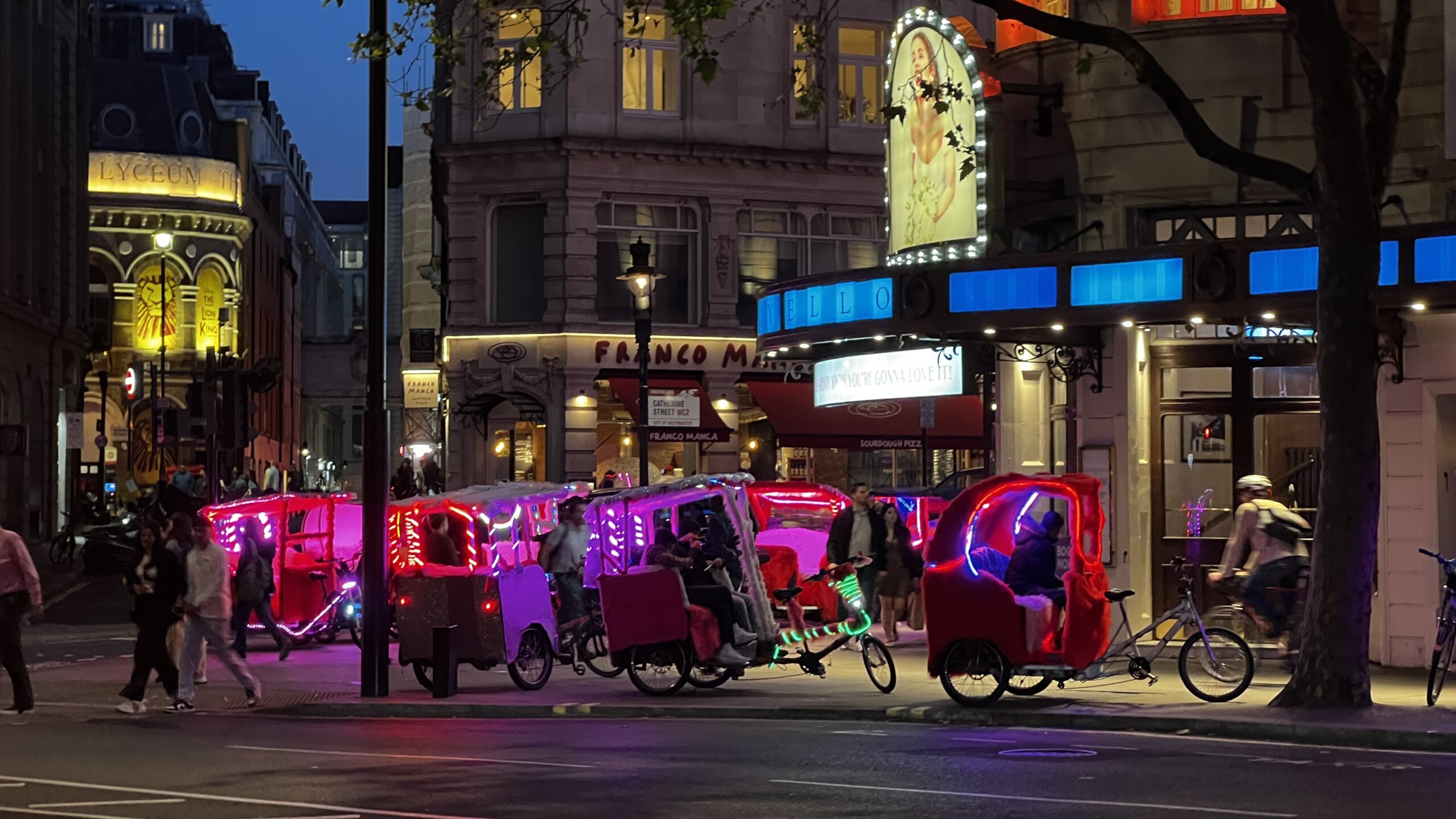
How to avoid getting scammed this way: Make sure you get a full price quote for the entire ride (all passengers included) before you hop on, and think critically about whether or not that price is actually worth it to you.
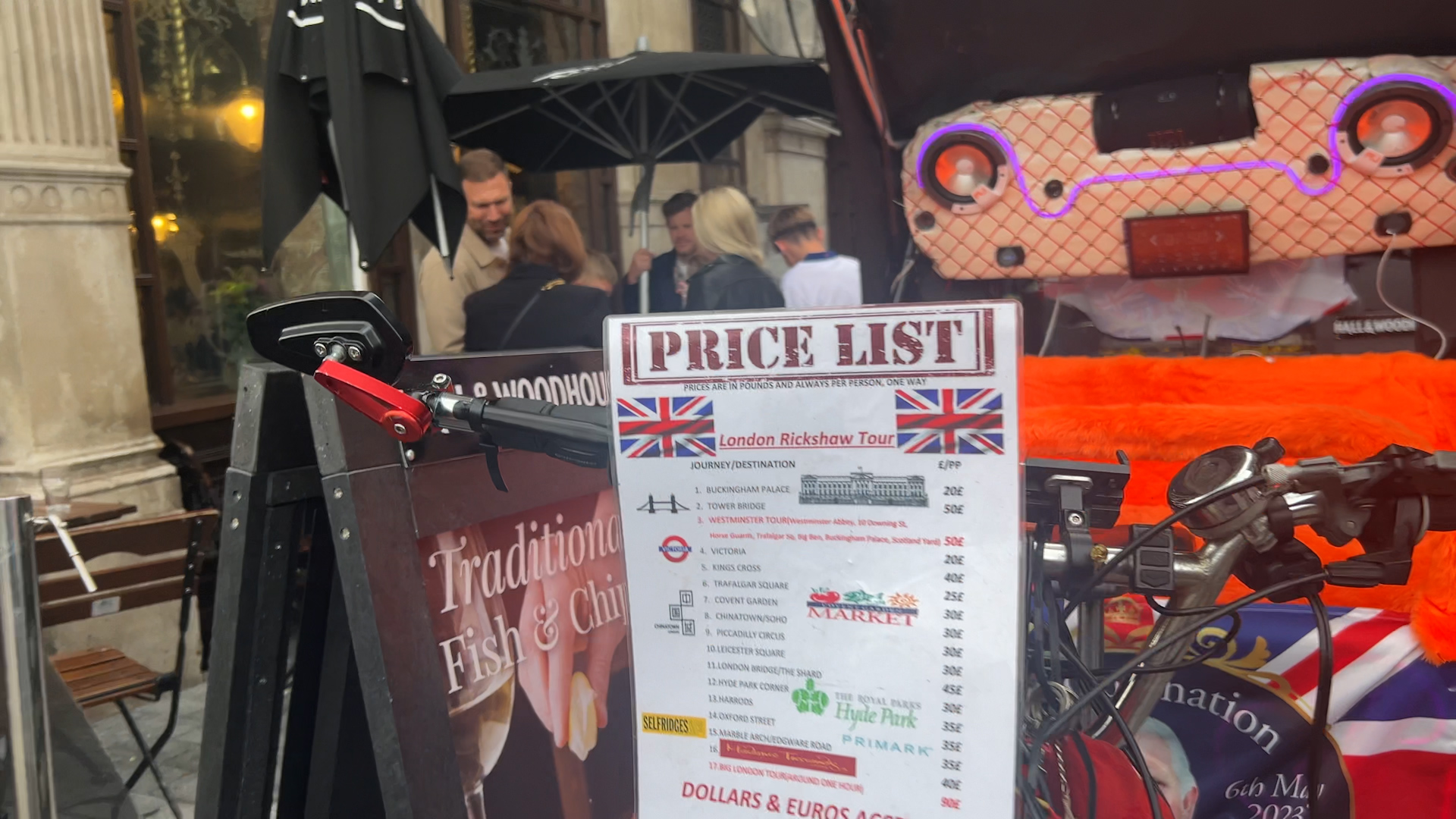
9. Euronet ATM Scam
How this scam works: You’re in need of cash while exploring and you decide to withdraw cash from a Euronet ATM rather than from a regular bank… only to discover later when you check your bank statements that they’ve charged you an arm and a leg to take cash out, with both bad rates and high fees in the mix!
Granted, these aren’t fraudulent ATMs… and they will give you money. But where they’re scammy is just how much they charge you for the privilege of taking cash out. Plus their locations in tourist hubs like airports and main attractions shows who their main clientele are – newcomers who don’t know better!
How to avoid getting scammed this way: Avoid Euronet ATMs and prioritize normal bank ATMs, especially ones that offer no fee withdrawal for your card.
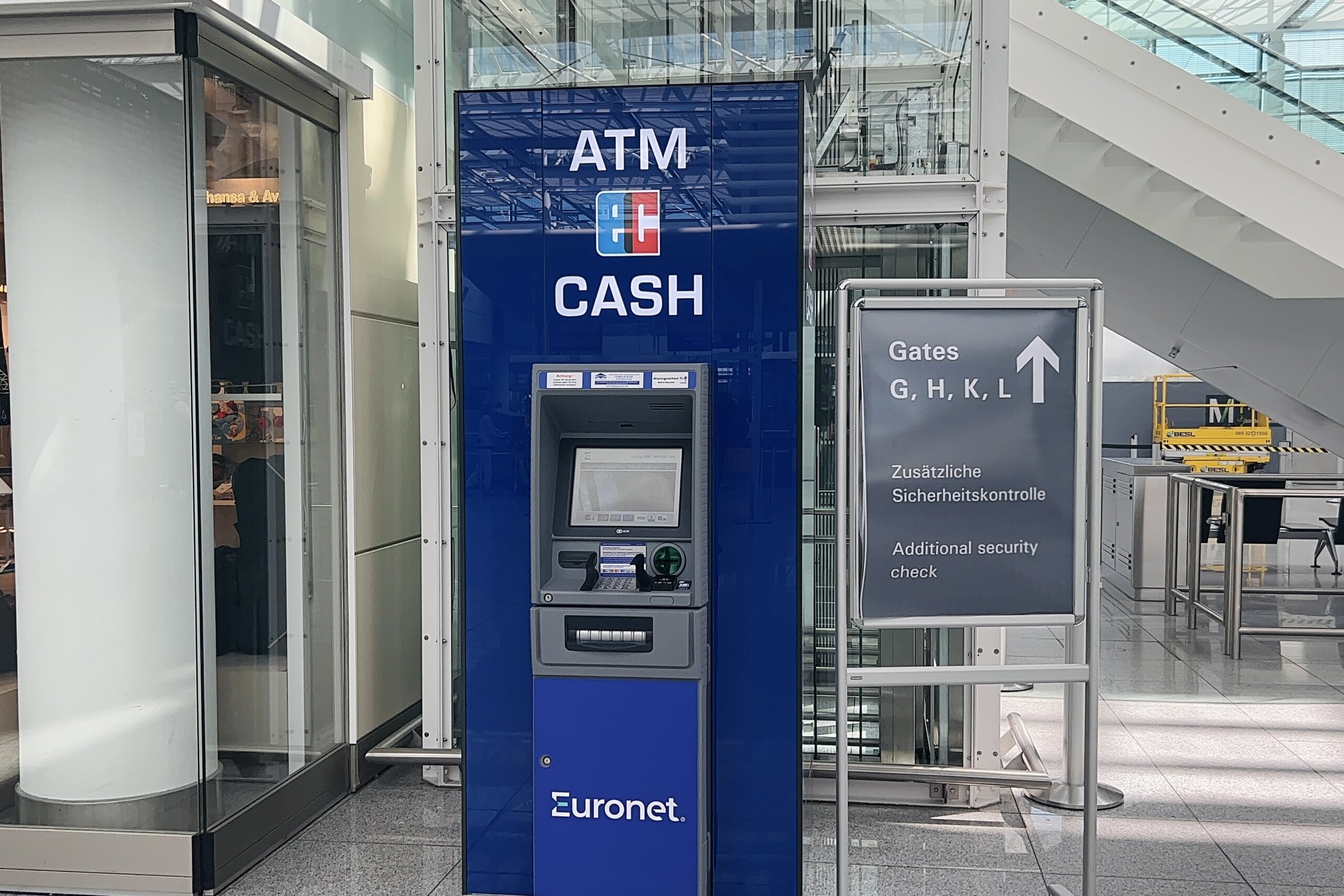
10. Change Switcheroo Scam
How this scam works: You buy something at a shop, or pay for a taxi with cash… only to realize all too late that you were given the incorrect amount of change back!
How to avoid getting scammed this way: Pay close attention to how much money you’re giving them and keep an eye on how much change they give you, making sure you call them out if they’re not giving you the appropriate change. Or, simply pay by card whenever you can, as the only possible scam is if they enter the wrong amount and hope you don’t notice. Even in these cases though, getting scammed on a credit card is better getting scammed with cash, because at least with credit cards you can ask for a chargeback.

11. Petition Scam
How this scam works: You’re exploring a city (usually in a touristy area) and spot groups of young women circulating with petitions. They ask if you speak English, and then ask you to sign their petition. Once you do, they’ll demand a donation, becoming aggressive if they don’t get any money… or perhaps one of them is already picking your pockets while you’re distracted signing/arguing!
How to avoid getting scammed this way: Odds are, this is not going to be a legitimate petition… so the best course of action is to just not engage and ignore them completely.

12. Street Game Scams
How this scam works: You’re walking around and see a seemingly easy game being played on the streets. Money is on the line yet it seems like people keep losing. Often this is the classic ball and cup game where there’s three balls and you have to keep an eye on which one it’s under. You decide to take a turn since it seems so easy, but lose every time, losing precious treat money in the process. Clearly there’s no winning here, and you’ll sometimes even get pickpocketed while you’re distracted!
How to avoid getting scammed this way: If you see any street games that involve paying money for a chance to win, run. There’s no winning here. And most of the time, if you see anybody winning, they are working in cahoots with the person organizing the game to give you a false sense of hope.

13. Fake Damage Scam
How this scam works: You’re walking around exploring and accidentally step on a piece of artwork you didn’t see on the ground, or perhaps you knock over a cup of coffee that someone has left on the floor. They spring into outrage immediately and ask you to pay for the damage you caused… often with an extortionate price tag attached.
How to avoid getting scammed this way: Any time you’re in a crowded area, make sure you are paying attention and looking at where you step.
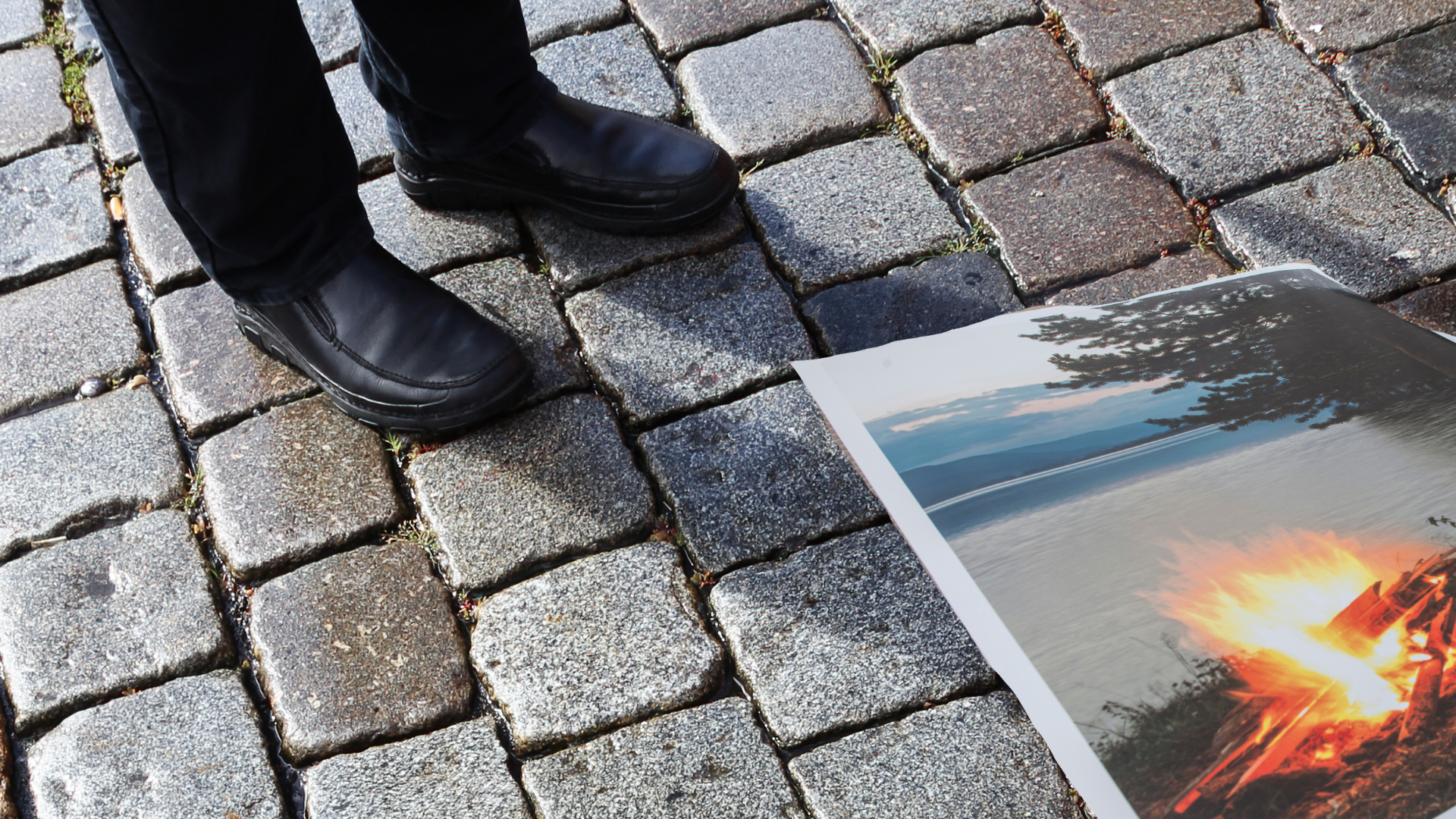
14. Fake Performance Scams
Compared to some of the other scams on the list, this one is fairly harmless, but just so you know, oftentimes in busy touristy areas, you may encounter buskers or street artists faking their craft to scam naive tourists.
How this scam works: Buskers/performers will fake their act for money, either by playing a music track that they pretend they’re playing, or working on a really elaborate sand sculpture of a dog that’s actually just a mold they bought online… waiting for you to shower them with money.
How to avoid getting scammed this way: Watch out for fake performers while exploring… but hey, remember: it’s not a total scam so long as you enjoy it!
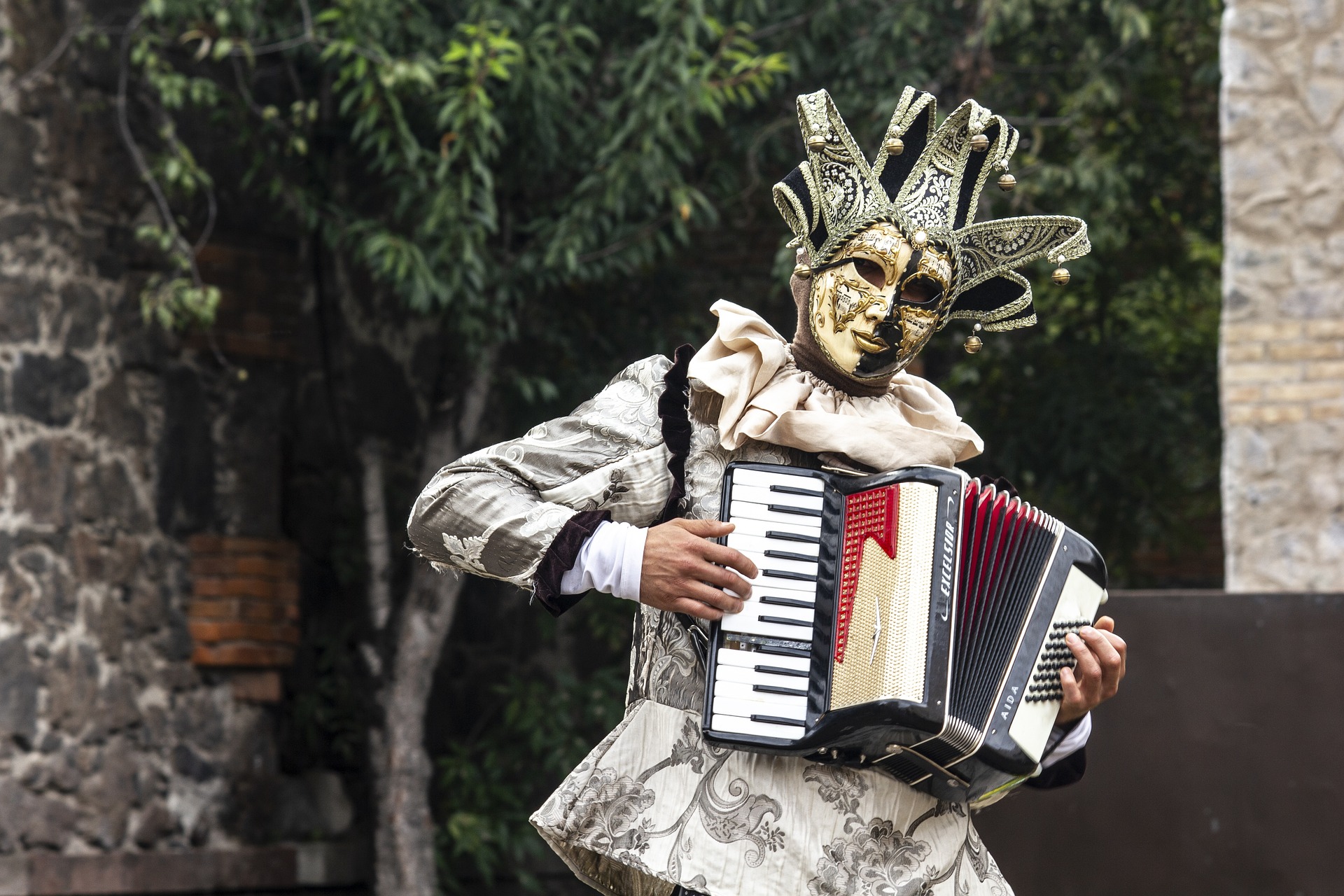
15. Fake Goods Scam
How this scam works: In a lot of busy touristy areas, you’ll often find that there are people on the street trying to sell you something, whether that’s counterfeit designer products, tickets to an attraction, or sometimes even drugs. BUT when you buy whatever they’re selling, you realize you’ve just dropped quite a lot of money on fakes.
How to avoid getting scammed this way: Do not buy goods off random street vendors that approach you. Needless to say, if a stranger comes up to you and asks if you want to buy something, whether that’s a Louis Vuitton purse, tickets to the Colosseum or…. cocaine, it’s probably not going to be legit.
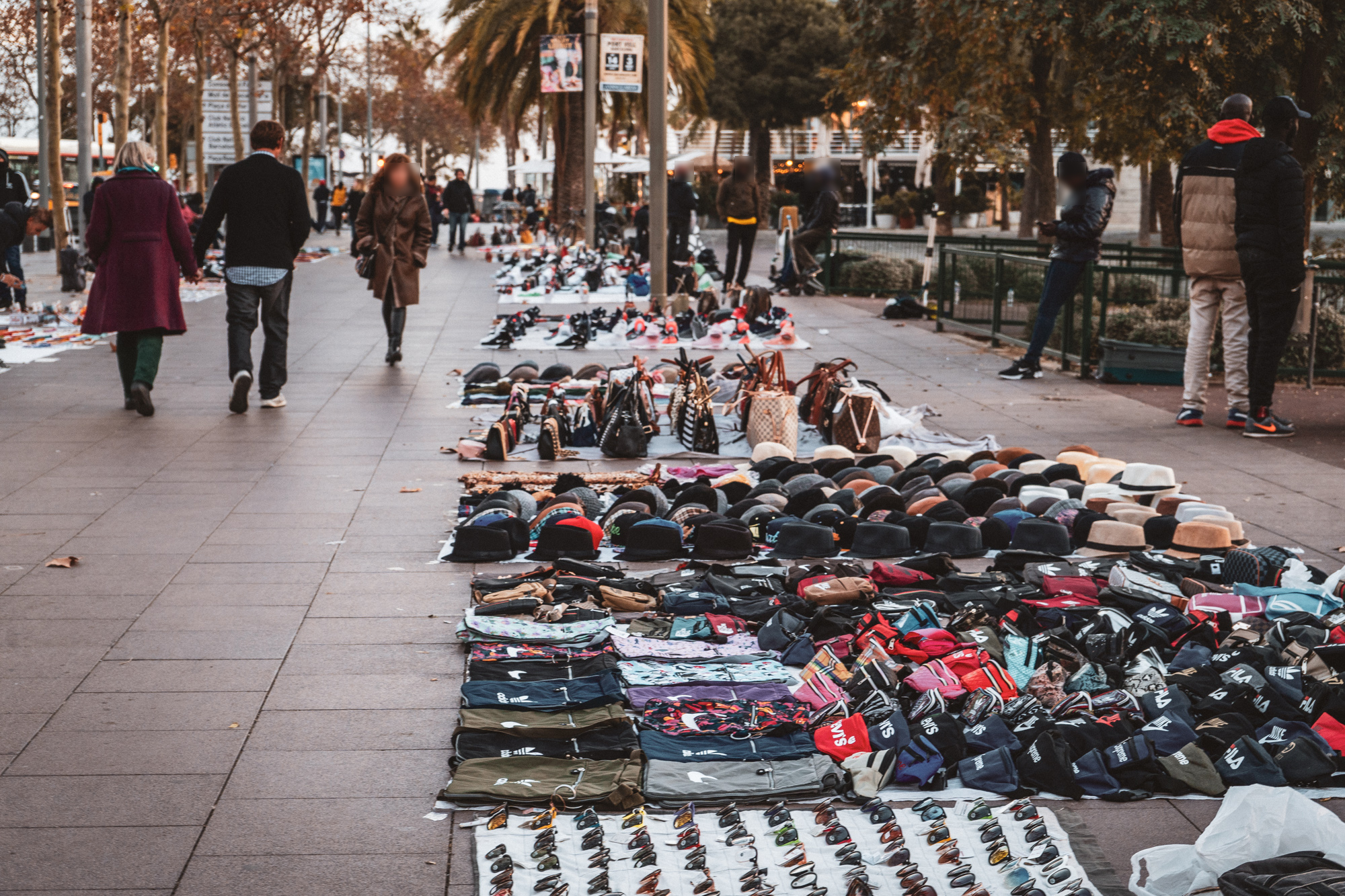
16. Hot Stranger Scam
How this scam works: Most common in touristy party destinations like Prague or Budapest, you’ll be out minding your own business when an attractive stranger approaches you on the street or in a bar, asking you to grab a drink. When you enthusiastically reply yes, they will take you to another bar, where a big bouncer is going to block the door and not leave until you’ve paid for your drinks… which of course a fortune.
How to avoid getting scammed this way: Europe is great, but the odds of a really attractive stranger coming up to you and just being super friendly without any ulterior motives is not super high, so just be wary of any strangers trying to bring you to another location, and maybe insist you stay where you are or go to a place you pick instead.

17. The “We Know a Better Place” Scam
How this scam works: Someone will come up to you and insist that wherever you are (whether that’s a bar or attraction) is crappy/closed and that they know someplace better… only to bring you to a place they’re in cahoots with where drinks and prices will cost 10x more!
How to avoid getting scammed this way: Be wary of random strangers trying to lure you to a different location. Most of the time, they are bad news.

18. Fake Police Scam
How this scam works: More common in busy party cities like Barcelona, you’re out on the town after a few drinks and encounter some suspicious looking police officers who ask for your IDs, passports and wallets. Scared and drunk, you hand everything over, only to realize later they’ve stolen from you.
How to avoid being scammed this way: Never give your stuff over right away! It’s very rare that an actual police officer is going to come up to you and ask to see your passports unprovoked, so be sure to ask to see their badges/IDs and demand a valid reason for them to need your documents.
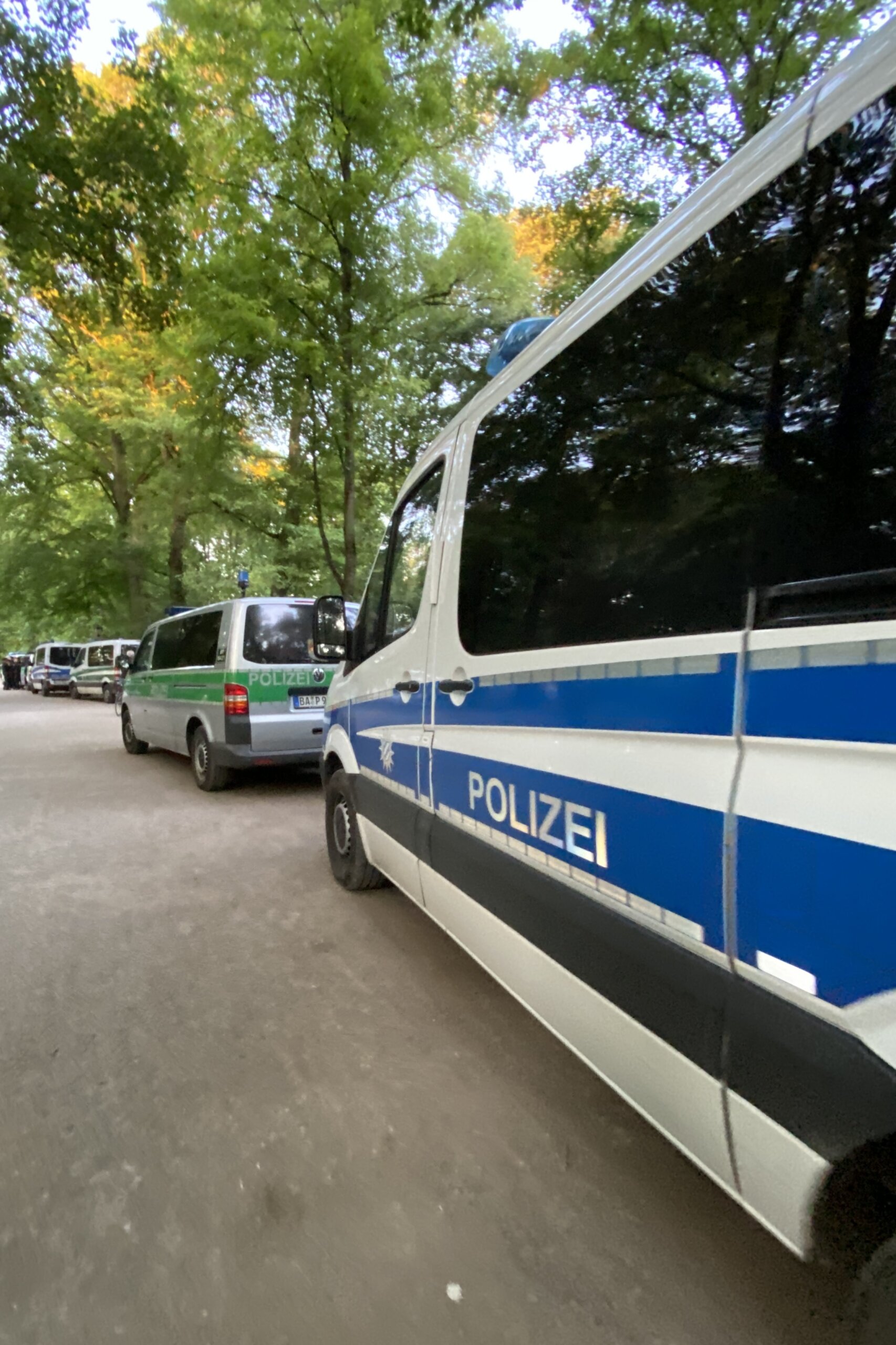
19. Helpful Stranger Scams
How these scams work: A nice stranger will come up to you and offer their help (unprompted), assisting you with buying tickets for the train, or helping you find your way to the hotel… only for you to discover that they’ve pocketed the difference by buying you the wrong ticket, or want money for their services helping you after.
How to avoid getting scammed this way: Be very wary of strangers who offer help unprompted, especially when money is involved.

20. Phone Snatching Scams
When you are out with your phone, do be mindful that phone snatchings are becoming a very common crime these days in major European cities, so…
How to avoid being scammed this way:
- Avoid using your phone when you are right next to a road or bike lane
- Don’t leave your phone just out on a table, even when you’re sitting inside a restaurant. I’ve heard of multiple stories now about people coming in, distracting you, maybe putting a petition down or a map or newspaper down, and while you’re distracted talking to them, then they actually take your phone in the process.

21. Distraction Scams
Finally, this last one is tied to pickpocket culture and is basically just an umbrella term that I’ve coined for any scam that relies on you being distracted so that they can take your wallet in the process.
Now, this can come in a lot of different forms, whether that’s…
- Just talking to you while their partner distracts you
- Asking you to take their photo while creating some commotion in the process to distract you
- Or in more extreme cases, I’ve even heard of people squeezing toothpaste on you, pretending like it was a bird that pooped on you and then cleaning you up in the process while also taking your wallet.
How to avoid being scammed this way: Keep your wits about you and keep an eye/hand on your valuables at all times!
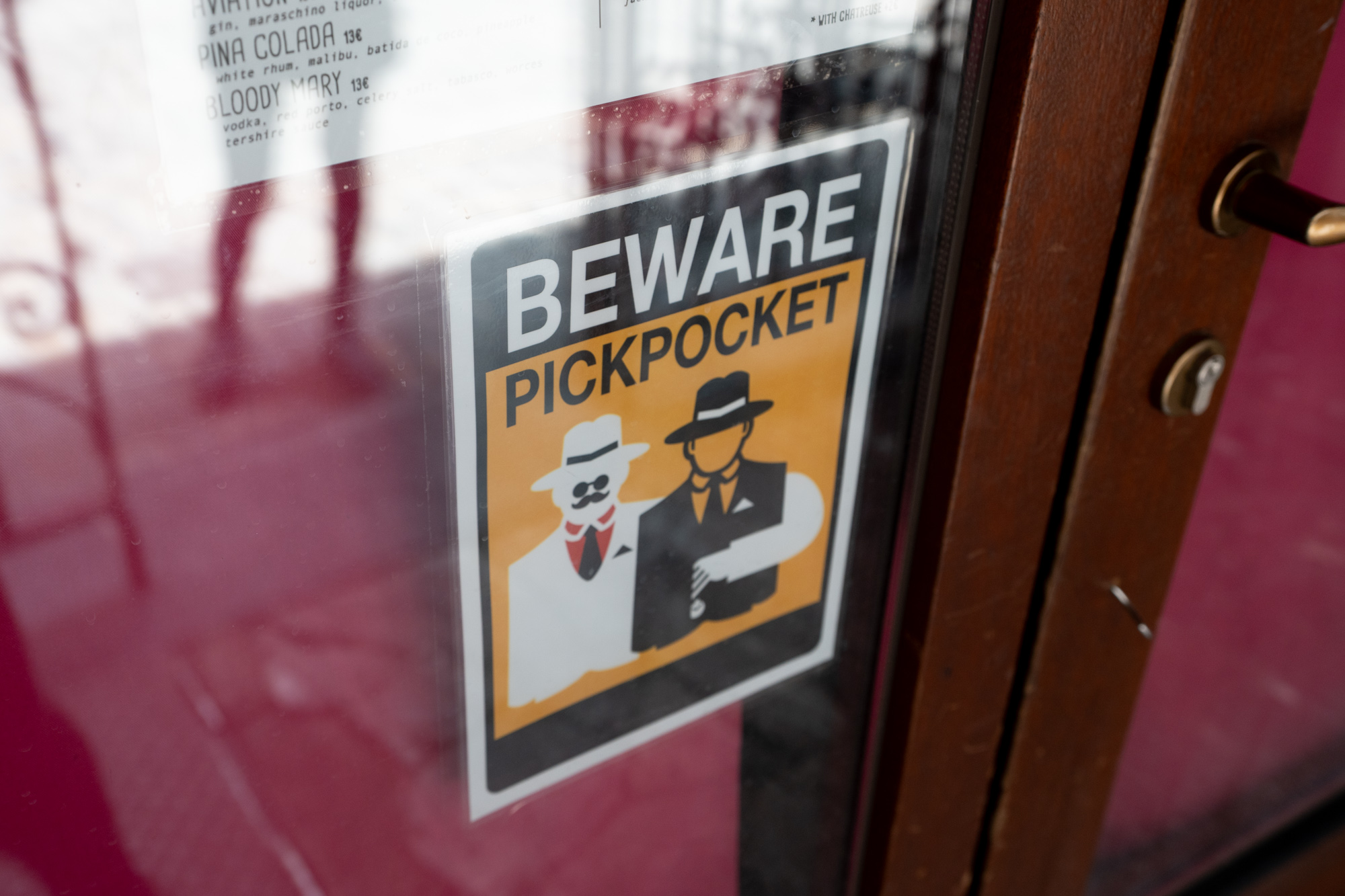
Did I Miss Any Common Europe Tourist Scams?
Let me know in the comments if you can add any more examples/experiences to the list!

